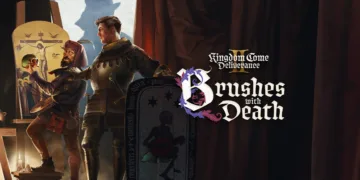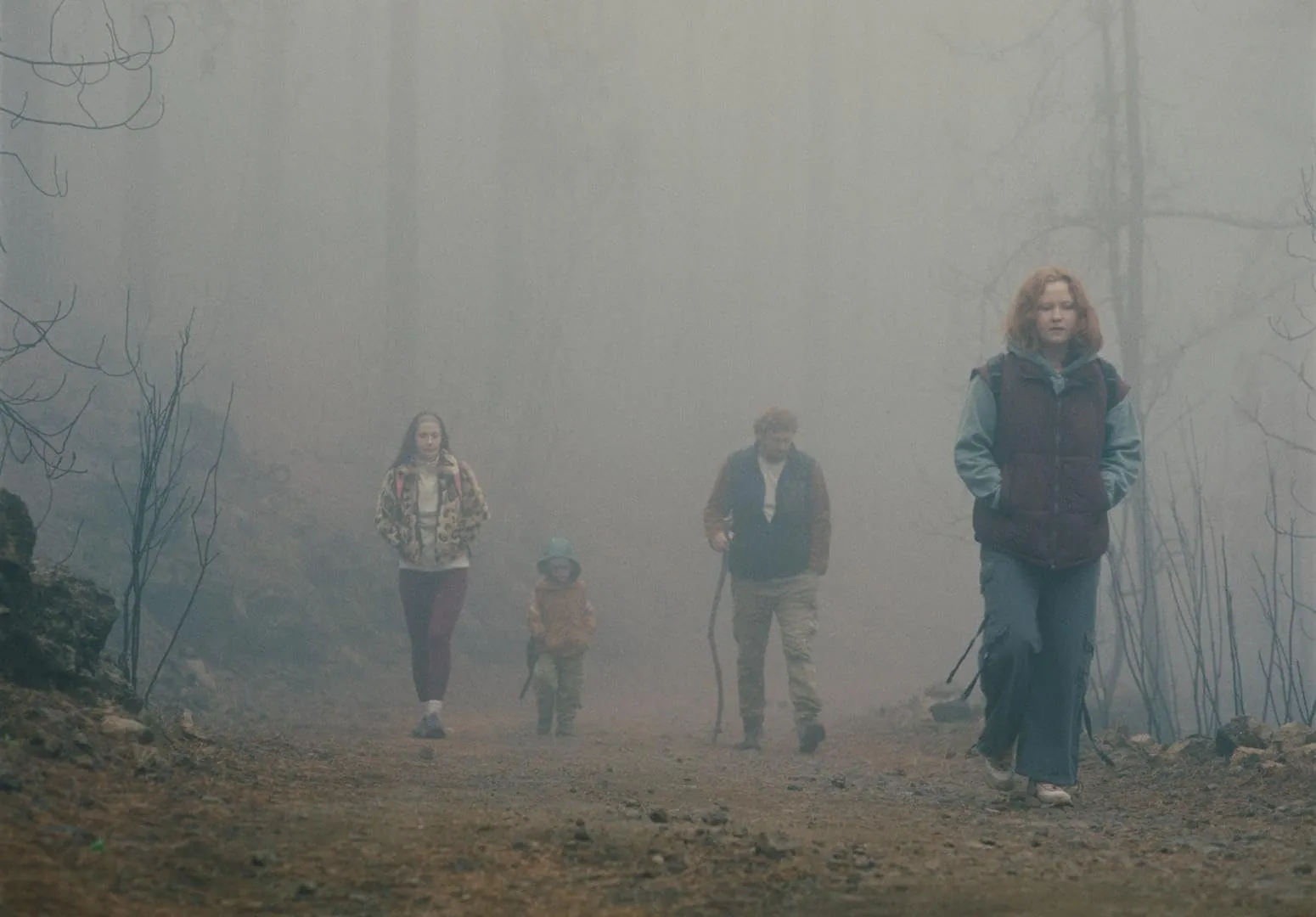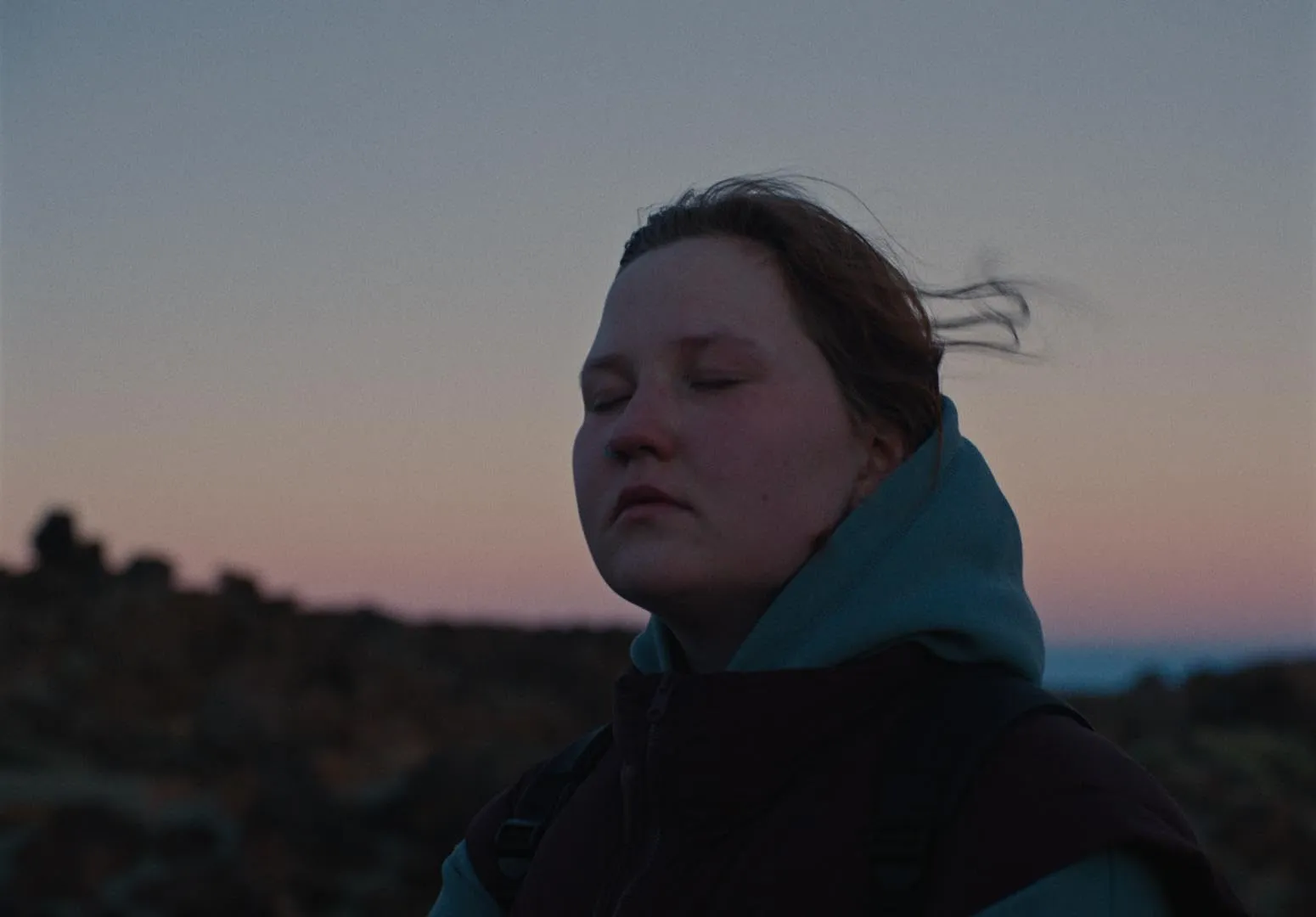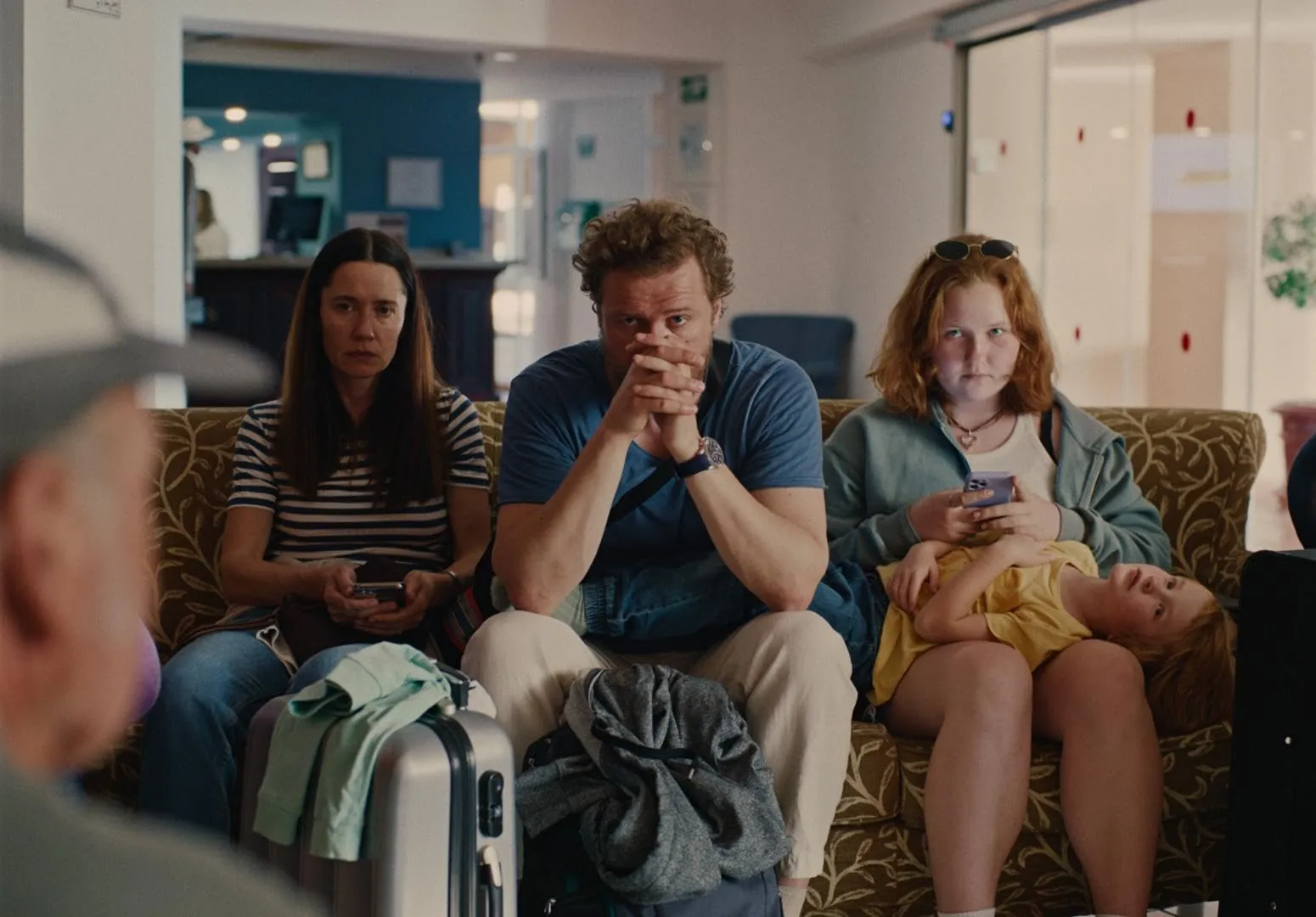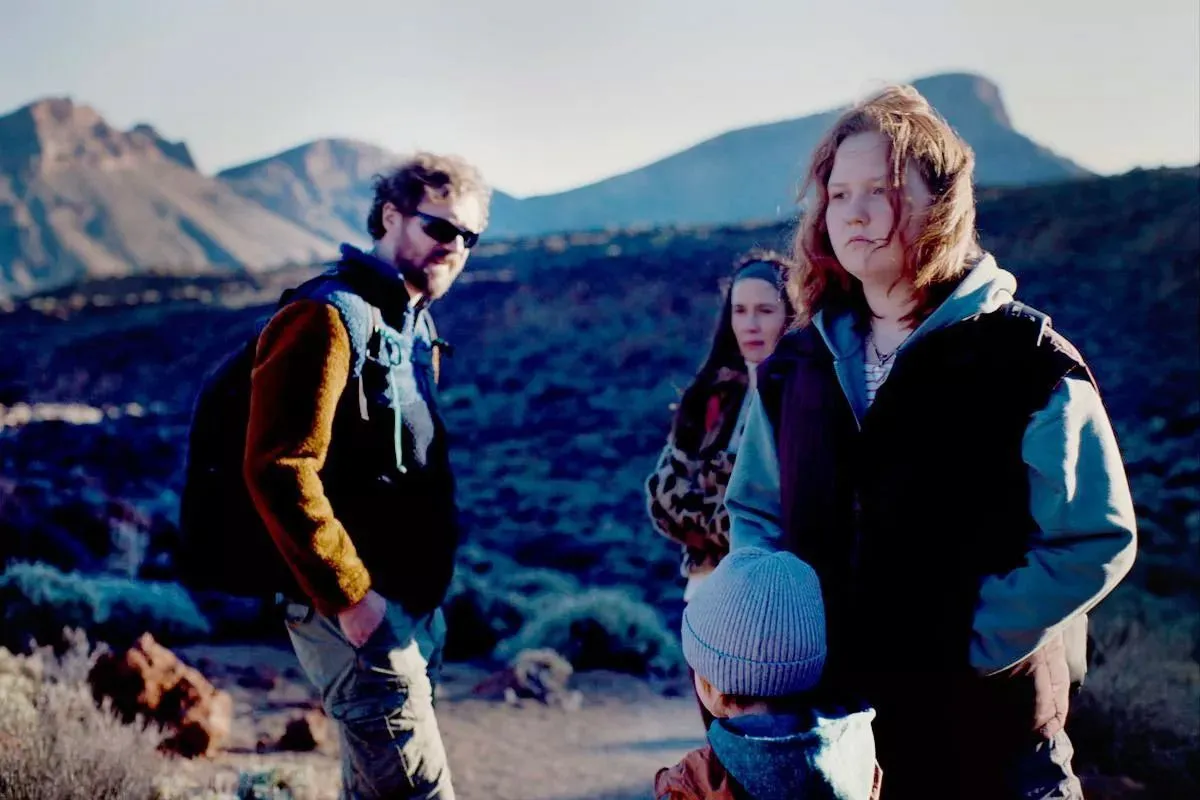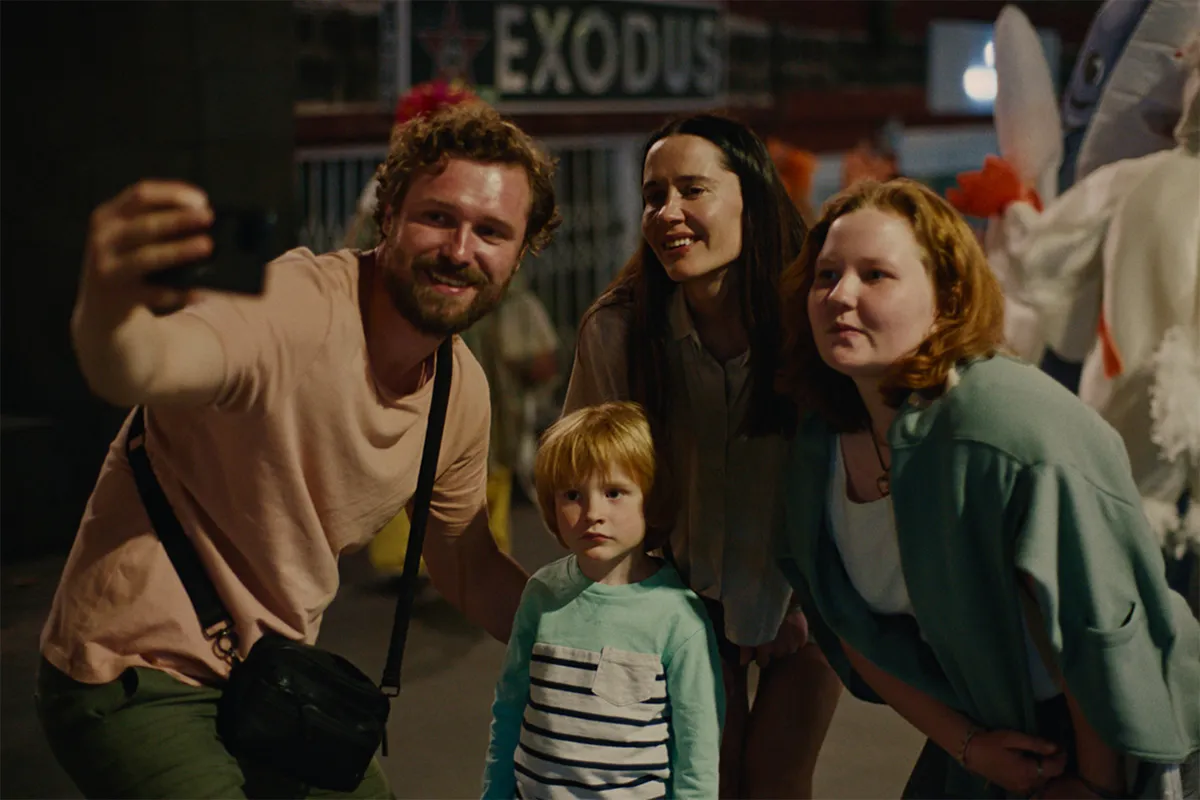Tenerife’s sunny scenery turns a Ukrainian family’s dream vacation into an unexpected journey of survival and coming to terms with their feelings. Roman, his new wife Nastya, their teenage daughter Sofiia, and their young son Fedir are caught in a strange historical moment. Russia’s full-scale invasion of Ukraine interrupts their lighthearted vacation.
What starts as a normal family vacation quickly turns into a tense look at moving, finding oneself, and being strong. The family comes to the beach with the usual holiday worries: where to go, how to get along with the new family members, and how to enjoy their time together. Roman and Nastya just got married and are still working to make their family work together. Sofia is having a hard time getting along with her new mom.
When they hear about the attack, everything changes. Their last day of vacation turns into a turning point that turns them from tourists to refugees they didn’t expect. The hotel’s quick offer of free lodging is both a lifesaver and a stark reminder of how uncertain their future has become. Notifications on their phones become sources of worry, connecting them to a country under attack while they are helplessly far away.
The family’s temporary home becomes their only home, and their relationships with each other become more tense. Under the surface, tensions are building. Roman is trying to get into bank accounts, Sofiia is talking to friends back in Kyiv, and young Fedir is having difficulty figuring out how everyone feels. A tourist spot that seems carefree in the background turns into a volcano of emotional pressure, ready to break at any time.
While tourists dance and enjoy their vacations in the background, the family feels very alone. Their problems are like the bigger humanitarian disaster; they show how people have to move, stay alive, and deal with the mental effects of war. Sofiia deals with the situation through distant video recordings, Roman through worries about money and everyday things, and Nastya through duty to keep the family together.
The movie shows a family stuck between their past and their uncertain future, with the shocking contrast of a holiday full of fun and a deep personal tragedy happening all around them.
Emotional Landscapes: Characters Navigating Unprecedented Turmoil
Roman turns out to be a complicated father figure who is dealing with a lot of uncertainty. His acting shows a man torn between his family duties and the threat of a national emergency. When he tries to get money out of the ATM and call his home country, we can sense his subtle anxiety.
He is trying to stay in charge of an uncontrollable situation. His possible choice to join the military becomes a powerful metaphor for personal sacrifice. This is shown beautifully in a moving scene where he tells his son stories about his past success in rap music.
Nastya stands out as the family’s emotional rock, keeping things stable even as things get more tense. The family’s life changes big ways, making her job as a new stepmother even harder. She patiently handles the tricky relationships between Roman’s children and herself and always tries to keep the family together. Her performance shows that she is both strong and sensitive and knows how hard it is to blend a family while the country is going through a national trauma that has never been seen before.
Sofiia is a perfect example of a modern teenager: linked and disconnected. Her constant use of the internet and video clips helps her deal with her complicated feelings. Through her exchanges with Mike, an African immigrant, she learns more about surviving and moving on after being uprooted. Her character arc is especially interesting, going back and forth between numb teen feelings and a deep understanding of the humanitarian situation.
Young Fedir gives the show’s most innocent point of view. His child’s knowledge of what’s going on—wondering about “snow” that is actually volcanic ash—shows how the family is trying to hide from harsh realities. His nightmares and responses to parental arguments show how war affects kids emotionally in hard-to-see ways. This makes his character a strong emotional conduit.
Mike, the African immigrant, is more than just a supporting figure; he is a key symbol. He talks to Sofia, and their jokes about the actors in “Titanic” show how different refugee situations are. His appearance makes people think about how complicated and multilayered it is to be displaced and survive.
The actors bring these characters to life in amazing ways, turning what could have been a highly charged story into a deeply human one about family, survival, and strength. Their acts go beyond the situation in Ukraine and speak to everyone’s hopelessness and uncertainty.
Each character’s feelings build up like a volcano, sometimes exploding and staying calm. Ultimately, they show how strong people are and can connect even in the worst situations.
Tremors of Humanity: Unraveling Silent Eruptions
Wars don’t just destroy towns; they also break up families. “Under the Volcano” takes a personal story and turns it into a deep look at how strong people are, where every encounter is an emotional tectonic plate. The Russian invasion doesn’t just threaten Ukraine’s landscape; it also changes family relationships and makes each character think about what it means to be safe, join, and survive.
Tenerife’s volcanic scenery is more than just a background; it’s a powerful metaphor for the stresses inside the family. Even though things seem calm, their feelings are building up like a volcano ready to erupt. The mountain could erupt suddenly and severely, just like the family’s mental state is fragile, and years of unspoken tensions could explode at any time.
Moving around becomes a character in and of itself. The family is stuck between the paradise of Tenerife and the burning reality of their home country. This puts them in a special kind of psychic limbo. They are both survivors and observers simultaneously, privileged and helpless. Not only are they physically alone, but they are also emotionally and spiritually alone. There is a chasm between their past life and an unsure future.
Identity becomes a flexible idea that is always changing because of outside forces. Roman’s possible military service, Sofiia’s constant use of the internet, and Nastya’s efforts to keep the family together are all examples of different ways that people keep themselves together when facing a lot of doubt. The war doesn’t just make them question their national identity; it also makes them rethink their limits and their families’ roles.
The movie shows the paradox of modern war: how global events can turn everyday events into amazing emotional landscapes. A family dancing in a conga line while checking the latest war news or tourists having a good time while a humanitarian crisis happens: these scenes show how strange it is that individual experiences don’t seem to connect with group trauma.
Ultimately, “Under the Volcano” is less about the war and more about how people can keep going and find connections in the strangest places. Like the volcanic ash people thought was snow, the characters learn to see beauty and hope amid pain and complexity.
Framing Silence: Visual Poetry of Displacement
“Under the Volcano” by Damian Kocur turns the film into an emotional language. Each frame says a lot about displacement and pressures that aren’t said. Nikita Kuzmenko’s camera becomes an invisible family member that records deeply vulnerable times with a surprising level of closeness.
The visual method is meant to be simple, but it is very powerful in how it makes you feel. Long lenses give off an air of emotional distance, similar to how the family feels emotionally distant from their home country. Shallow focus is used as a metaphor to blur the lines between reality and uncertainty, just like the family’s life is on hold between vacation and being a refugee.
Scenes are put together with an amazing awareness of how people feel. The camera records her disconnection as Sofiia walks along the beach, shooting tourists in bikinis. It shows a young woman who is both there and not there. Wide shots of the volcanic scenery are very different from close-ups of tense family interactions, which show a sense of separation.
Serhii Avdieiev’s sound design turns natural sounds into voices that tell stories. Waves become whispers of possible danger, and the wind brings worries that aren’t said out loud. The soundscape isn’t about adding dramatic breaks but about making an emotional atmosphere where quiet is just as important as speech.
The editing beats reflect the chaos inside the family. Moments of what seems like peace are broken up by sudden emotional eruptions, like the volcano in the background. Quick cuts between family members’ emotions show how their shared experience is broken up, with each character living in their mental world.
The technical performance goes beyond the usual ways of telling a story or documenting something. It’s a visual poem about life, using film choices as metaphors for things like being moved, going through trauma, and the fragile human ability to keep going. Every technical choice is part of a bigger story, turning technical skill into pure emotional expression.
Narrative Tectonics: Crafting Emotional Landscapes
“Under the Volcano” by Damian Kocur turns the film into an emotional language. Each frame says a lot about displacement and pressures that aren’t said. Nikita Kuzmenko’s camera becomes an invisible family member that records deeply vulnerable times with a surprising level of closeness.
The visual method is meant to be simple, but it is very powerful in how it makes you feel. Long lenses give off an air of emotional distance, similar to how the family feels emotionally distant from their home country. Shallow focus is used as a metaphor to blur the lines between reality and uncertainty, just like the family’s life is on hold between vacation and being a refugee.
Scenes are put together with an amazing awareness of how people feel. The camera records her disconnection as Sofiia walks along the beach, shooting tourists in bikinis. It shows a young woman who is both there and not there. Wide shots of the volcanic scenery are very different from close-ups of tense family interactions, which show a sense of separation.
Serhii Avdieiev’s sound design turns natural sounds into voices that tell stories. Waves become whispers of possible danger, and the wind brings worries that aren’t said out loud. The soundscape isn’t about adding dramatic breaks but about making an emotional atmosphere where quiet is just as important as speech.
The editing beats reflect the chaos inside the family. Moments of what seems like peace are broken up by sudden emotional eruptions, like the volcano in the background. Quick cuts between family members’ emotions show how their shared experience is broken up, with each character living in their mental world.
The technical performance goes beyond the usual ways of telling a story or documenting something. It’s a visual poem about life, using film choices as metaphors for things like being moved, going through trauma, and the fragile human ability to keep going. Every technical choice is part of a bigger story, turning technical skill into pure emotional expression.
Navigating Invisible Wounds: Emotional Terrains of Survival
Damian Kocur’s direction of “Under the Volcano” is a lesson in storytelling with restraint and subtlety. Working with screenwriter Marta Konarzewska, he crafts a story that whispers where others might scream, finding deep meaning in the smallest exchanges between people.
The script builds tension through what isn’t said, making the feelings build up like a pressure cooker. Kocur doesn’t use dramatic exposition, but he does take some cues from Michael Haneke’s clinical approach to human behavior. Instead, he lets the characters show who they are through small interactions, like a glance, a pause, or a casual comment about kids that says more than a whole speech.
Kocur’s style as a director welcomes the awkward spaces between family members. The movie turns into a delicate dance of unresolved issues, and the Russian invasion isn’t used as a dramatic plot point but as a way to show how the family is already broken. Young Fedir’s innocent questions about “snow,” that is, volcanic ash, become a figure of speech representing how the family tries to make hard truths more bearable.
The writing shows a lot of understanding of how hard it is for mixed families and people who must move. Conversations feel painfully real, like when Sofiia makes a sharp comment to Nastya about not having children, which hits like a surgical knife. Each line of conversation sounds like it was improvised but was carefully planned out, showing a lot of emotional depth.
Kocur’s style is torn between observing things in a documentary-like way and carefully putting together dramatic moments. The script doesn’t follow the usual plot structure. Instead, it shows a slice of life unique to this Ukrainian family and universal in its look at how strong people can be.
Kocur avoids over-the-top dramatic tropes to turn what could be a simple war story into a deep meditation on family, survival, and the unseen wounds of displacement. The direction becomes an emotional plan that shows the hidden landscapes of human experience.
Tremors of Humanity: Landscapes of Conflict and Compassion
“Under the Volcano” turns the Russo-Ukrainian War from a general political conflict into a personal story about real people. The movie’s genius is how it shows how global wars change people’s lives precisely through private family moments that bring out the worst in history.
Tenerife’s volcanic landscape is more than just a pretty picture; it’s a strong metaphor for the problems in the world’s politics. The war is building up under the family’s seemingly peaceful surface, ready to change their lives instantly, just like the dormant volcano is about to explode. This use of metaphors lets the movie reach people worldwide, discussing shared experiences of being forced to move and survive.
Mike’s figure, an African immigrant, is a key way to look at the experiences of refugees in general. His exchanges with Sofiia show how complicated global migration is and call into question simple stories about refugee identities. Through him, the movie shows that being a refugee is not a one-size-fits-all experience but a very personal one shaped by strength and unexpected relationships.
Instead of going for shock value, the war is shown in a way that focuses on how it affected people’s minds. Roman’s possible decision to go back and fight, Nastya’s efforts to keep the family together, and Sofiia’s decision to disconnect from the internet all become microcosms of how different people deal with collective pain. The movie points out that staying alive is less about big, brave acts and more about keeping in touch with other people when things go wrong.
It’s natural for bigger social themes to come up. The contrast between tourists having fun on vacation and a family reading about the war is a strong statement about how indifferent people are worldwide. The movie doesn’t judge, though. Instead, it shows how complicatedly people deal with loss, finding beauty and connection even in the worst situations.
Symbolically, the movie turns a political dispute into an in-depth look at feelings. For young Fedir, the volcanic ash that he thought was snow is a metaphor for softening harsh facts to protect ourselves and our loved ones from them.
In the end, “Under the Volcano” is a complex reflection on how strong people are, showing how personal stories can illuminate the most complicated world stories.
The Review
Under the Volcano
"Under the Volcano" is a superb film that goes beyond the usual limits of war stories to show how strong people can be. Damian Kocur has written a deep reflection on moving, family relationships and surviving. He has turned personal tragedy into a story of hope and complexity that anyone can tell. Focusing on small, personal moments instead of big, dramatic actions, the movie shows the extraordinary in what seems normal, capturing the emotional landscape of conflict with amazing subtlety and sensitivity. The best thing about the movie is how it makes big political events more real by showing how families connect. Every character becomes a complicated emotional vessel that navigates a world of uncertainty with surprising weakness and strength. The landscape of volcanoes is a strong metaphor for the tensions in family and global settings. "Under the Volcano" is the most thoughtful and caring movie made in recent years. It is technically perfect, deeply moving, and philosophically thought-provoking. It makes people think about what they know about displacement, war, and human connection.
PROS
- Exceptional cinematography capturing subtle emotional nuances
- Powerful, naturalistic performances
- Innovative narrative approach to depicting war's impact on families
- Sophisticated use of metaphorical landscape
- Nuanced exploration of displacement and refugee experiences
- Balanced portrayal of complex family dynamics
CONS
- Potentially slow pacing for viewers expecting traditional narrative
- Requires active viewer engagement
- Limited dramatic exposition might challenge mainstream audiences
- Complex psychological layers might be challenging for casual viewers

































